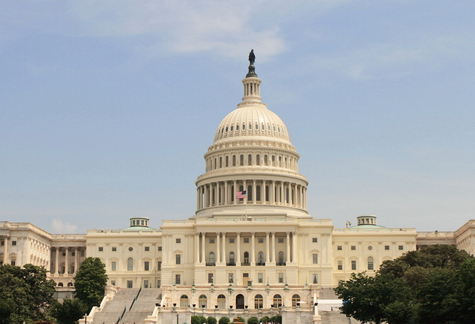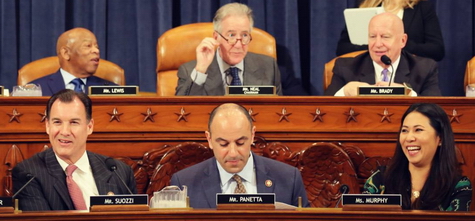
A bipartisan spending deal to fund the government before a Dec. 20 deadline has been agreed to in principle, with details and a vote expected next week, according to top congressional lawmakers. During the year-end policy rush to attach other legislation to the must-pass spending bill, The Roundtable and a diverse business coalition on Dec. 11 urged Congress to extend the Terrorism Risk Insurance Act (TRIA) for 7 years by passing S. 2877.
As lawmakers work to assemble the final spending package to pass by Dec. 20, several other measures – including a seven-year TRIA reauthorization and tax extenders – may compete for inclusion in the final “omnibus” bill.
Roundtable Urging TRIA Reauthorization
On Dec. 11, The Roundtable and a diverse business coalition sent a letter to all members of the Senate urging action on the Terrorism Risk Insurance Program Reauthorization Act of 2019 (S. 2877) as soon as possible. The Senate bill would extend TRIA for seven years, “allowing the program to continue providing vital economic protections against acts of terrorism that companies throughout the nation rely on,” according to the letter.
House Majority Leader Steny Hoyer (D-MD) said yesterday that a final omnibus containing the spending bill and other measures may be grouped into two packages and voted on Tuesday. Congress is expected to adjourn for the holiday recess by Dec. 20. (The Hill, Dec. 12)
# # #

The White House’s Office of Management and Budget (OMB) is reviewing a set of highly anticipated final rules for the Opportunity Zones program created by the 2017 Tax Cuts and Jobs Act, according to a Dec. 6 OMB notice. The rules will address requirements of qualified opportunity funds that invest in opportunity zones (OZs).
Through its Tax Policy Advisory Committee and Opportunity Zone Working Group, The Roundtable will continue to contribute to the implementation and oversight of the Opportunity Zone incentives, offering constructive comments and recommendations to Members of Congress and Treasury officials.
# # #

Responding to concerns raised by The Real Estate Roundtable and others, the Internal Revenue Service (IRS) on Dec. 9 issued Notice 2019-66 modifying and postponing several proposed changes to partnership tax reporting requirements. (Bloomberg Tax, Dec. 9)
The Real Estate Roundtable on Nov. 18 sent a letter to Treasury and the IRS urging the government to postpone certain reporting requirements in the new partnership tax return forms for 2019. The letter encouraged the IRS to seek formal input from stakeholders regarding specific items. The Roundtable noted in the letter that the reporting requirements as originally proposed were generating significant taxpayer uncertainty; could lead taxpayers to adopt inconsistent approaches to computing information; and may result in more harm than good. (Roundtable letter, Nov. 18)
Twelve other national real estate organizations sent a joint letter on Nov. 22 seeking a delay in the requirements and requesting a comprehensive comment process
This week’s IRS Notice makes the following changes:
Significant changes were made to the partnership audit rules in 2015, in response to widespread government concerns related to the challenges of administering partnership tax rules. The Roundtable and members of its Tax Policy Advisory Committee (TPAC) have actively contributed to the development and modification of partnership audit reform legislation. (Roundtable Weekly, Jan. 5, 2018 and October 11, 2019)
TPAC will continue to engage IRS and Treasury officials about timely stakeholder concerns with regulatory issues affecting real estate and the economy.
# # #

[Above: Members of the House Ways and Means Committee, including Chairman Richie Neal (D-MA), top center, and Ranking Member Kevin Brady (R-TX), top right.]
Prospects for a year-end tax bill are uncertain as congressional leadership and the Trump Administration expect to reveal details of a nearly $1.4 trillion FY2020 spending deal next week. Meanwhile, the House Ways and Means Committee on Dec. 11 approved a temporary suspension of the $10,000 deduction cap on state and local taxes (SALT) enacted in the 2017 tax reform bill.
A summary of the expired and expiring tax deductions, credits, and incentives that would be renewed through 2020 under the Taxpayer Certainty and Disaster Relief Act (H.R. 3301), which the House Ways and Means Committee approved on June 20, is available from Deloitte Tax LLP.
# # #